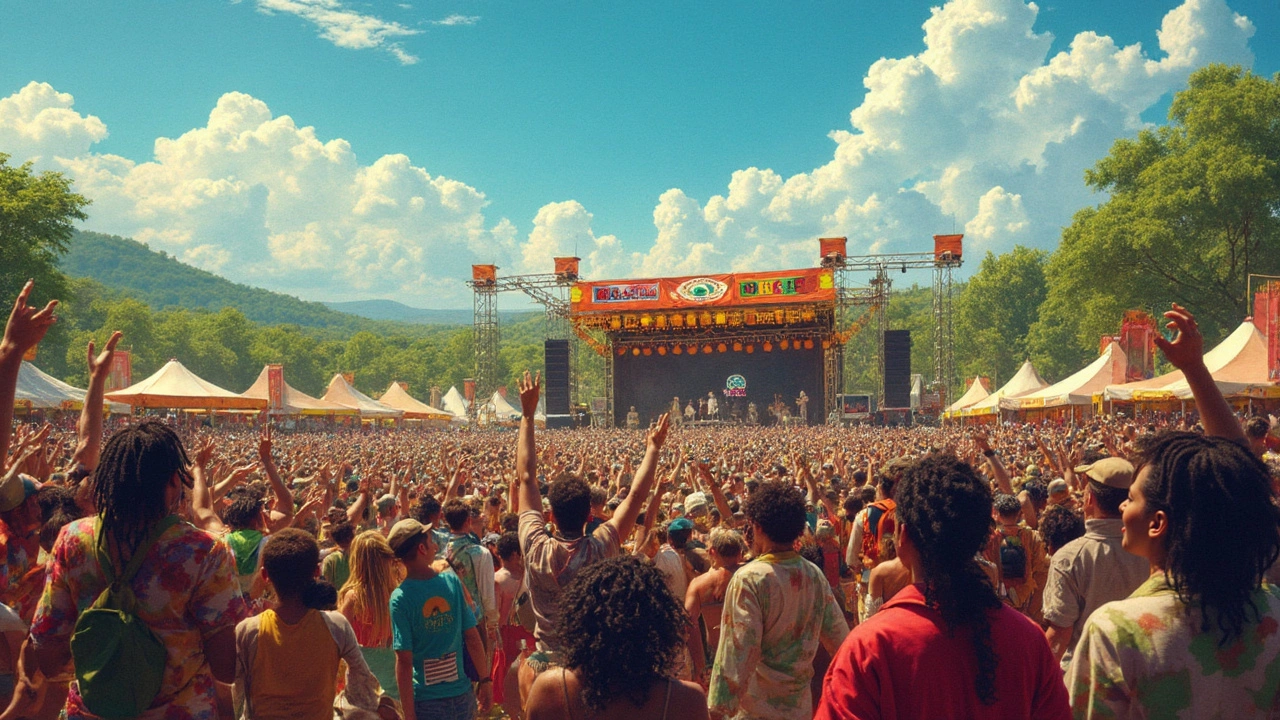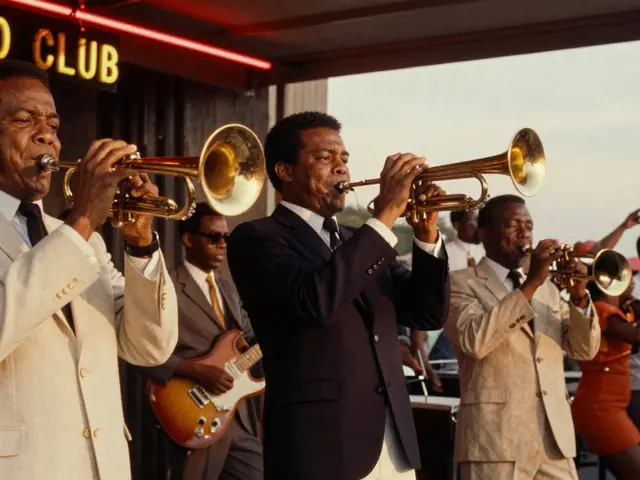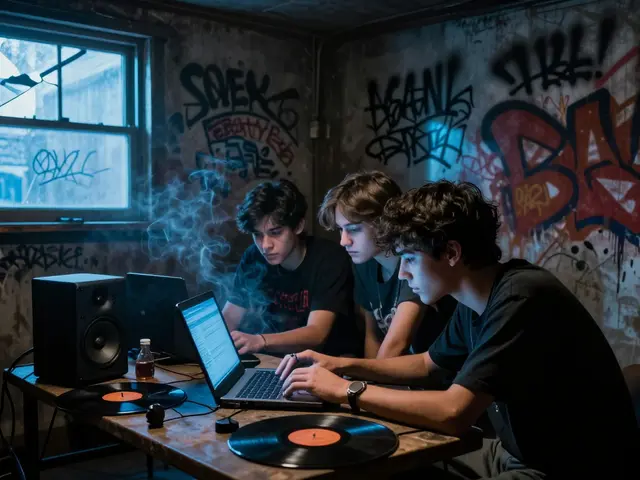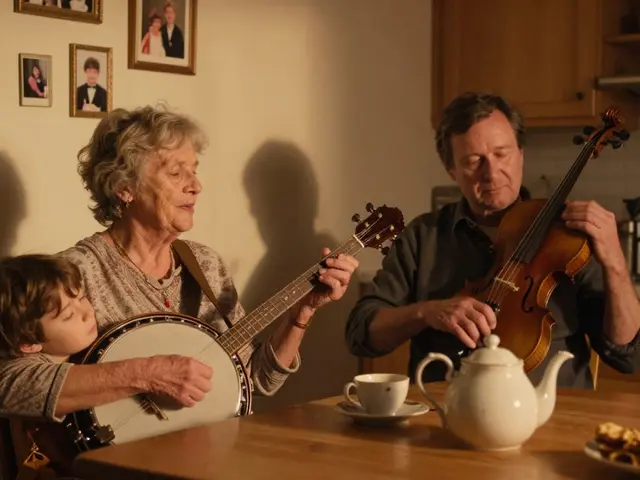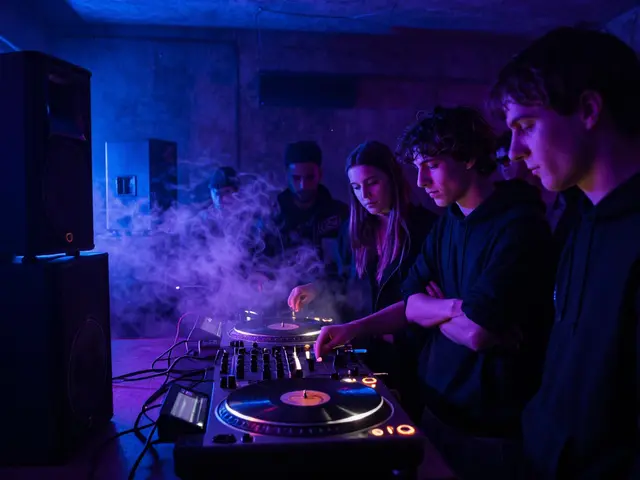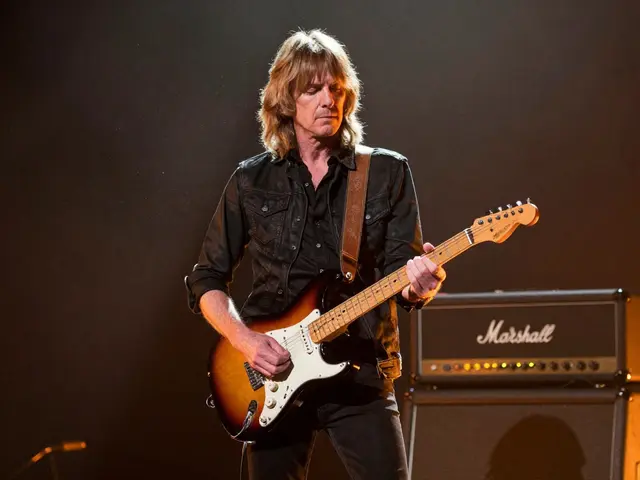Reggae music isn't just about the beats; it's about the stories, the struggles, and the movements it represents. Born in the vibrant yet tumultuous streets of Jamaica in the late 1960s, reggae carries messages that have echoed around the globe. You might wonder how such a specific genre managed to captivate audiences far beyond the palm-laden beaches of its homeland. Well, it's all in the rhythm and the powerful lyrics that challenge the status quo.
Reggae music has always been more than just a genre—it's a cultural force. Songs like Bob Marley's 'One Love' hit home with messages of peace and unity, themes that resonate with just about anyone. Who wouldn't want to spend an afternoon swaying to these soothing beats while pondering life's greater questions? But reggae hasn't just stuck to its roots; it has inspired genres like hip-hop and dancehall, reaching every corner of the music world.
So, what's the secret sauce? Reggae's power lies in its ability to express something real. The soul of reggae is in its honesty and bluntness, talking about social justice, love, and human rights. This universal appeal may be why you hear reggae influences on nearly every continent, in cities and villages alike. Keep an ear out; you might discover a local artist making waves with his or her reggae-inspired tunes.
The Roots of Reggae
When you think of reggae music, Jamaica almost instantly comes to mind. That's because it all started there in the late 1960s. But here's a tidbit you might not know: reggae wasn't the first musical wave to hit the island. Before reggae, there was ska and rocksteady, both of which helped shape what reggae would become.
Ska was the upbeat predecessor, really setting the tone with its fast-paced rhythms during the early 1960s. Then rocksteady came along, slowing things down a bit with a more laid-back vibe. Both these genres borrowed elements from African rhythms, American jazz, and R&B, but it was reggae that truly took these influences and crafted something unique.
Influences and Elements
One key element in reggae is the offbeat rhythm, which gives it that distinctive “chugging” feel. Think of it as a heartbeat in music form. This sound is deeply connected to the struggles and triumphs of Jamaican culture, often reflecting social and political issues of the day. Reggae was more than just music; it was a form of resistance and expression for many.
Key Figures in Early Reggae
No conversation about reggae music is complete without mentioning Toots and the Maytals or Jimmy Cliff, pioneers who helped push reggae onto the world stage. These artists took local, heartfelt stories and made them resonate with broader audiences, laying the groundwork for the global phenomenon we see today.
Interestingly, a lot of early reggae was recorded using makeshift studios with less-than-perfect equipment. Despite this, or maybe because of it, the raw and authentic sound added a layer to reggae's allure.
If you’ve ever wondered how such a small island made such a big impact, remember it’s not just about the music; it’s about the deeper stories and messages that reggae encapsulates. From challenging social norms to inspiring change, the roots of reggae are deeply tangled with Jamaica's history and its people’s indomitable spirit.
Reggae's Global Influence
It’s truly mind-blowing how reggae music has stepped beyond its Jamaican origins to become a beloved and uplifting genre worldwide. This didn’t just happen overnight. Prominent reggae artists like Bob Marley, Toots Hibbert, and Peter Tosh played major roles in spreading its vibes across continents, and their influence can't be overstated. Remember Bob's strong message? It reached every nook and cranny, from the bustling streets of London to the heart of Africa.
The global influence of reggae is especially visible in regions like Africa, where artists have embraced reggae themes in their own music. Take Lucky Dube from South Africa, who combined social justice lyrics with reggae rhythms to speak up about apartheid. His career was a testament to reggae's universal appeal, showing how it can ignite change no matter where you are.
In recent times, countries in Europe have caught the reggae wave in a big way. Festivals dedicated to reggae music are flourishing across the continent. One of the largest is Rototom Sunsplash in Spain, drawing reggae lovers from all corners of the globe. It’s like a one-stop shop for all things reggae, offering live performances, immersive workshops, and cultural exchanges.
Influence on Other Genres
Reggae's impact isn’t confined to just creating more reggae songs. It’s a genre that’s versatile and adaptive. Ever noticed how rhythm and blues, hip-hop, and even electronic music sometimes carry that iconic reggae vibe? This genre has seamlessly woven itself into the fabric of modern music, transforming with the times while retaining its core spirit.
Reggae's Message and Its Appeal
What truly sets reggae apart is its messages of love, equality, and freedom that resonate far and wide. In a world filled with conflicts and stress, reggae offers a rhythmic breath of fresh air, reminding folks to pause and think about what really matters. It's all about shared human experiences, and that's part of its magnetic power.
Indeed, reggae’s ability to transcend cultural and physical borders shows us how powerful music can be in bringing us all closer together. Who would have thought a small island's music could leave such a big mark worldwide?
Iconic Reggae Artists
When talking about reggae music, it's impossible not to mention the legendary Bob Marley. Born Robert Nesta Marley, he brought reggae into the international spotlight with hits like 'No Woman, No Cry' and 'Redemption Song'. Marley symbolized peace and love, and his influence spans beyond music into global cultural movements.
Another giant in reggae, Peter Tosh, was a founding member of The Wailers alongside Marley. Tosh was known for his fiery, revolutionary spirit. Tracks like 'Legalize It' promoted not just the legalization of cannabis but also pushed for freedom and rights in his native Jamaica. Tosh's musical legacy is all about boldness and social activism.
Don't overlook Bunny Wailer, the third key member of The Wailers, whose solo career was just as impactful. Bunny emphasized Rastafarian themes and also sought to preserve reggae's roots. His album 'Blackheart Man' is a staple for anyone diving deep into reggae's origins.
Modern Icons
In recent times, artists like Sean Paul and Shaggy have kept the reggae flame alive, adding dancehall twists that appeal to younger audiences while still paying homage to traditional reggae sounds. Meanwhile, international artists such as Sizzla and Beenie Man have expanded reggae's reach into new territories, showcasing how adaptable and influential reggae truly is.
Reggae has remarkable staying power. Its artists have often doubled as social commentators, offering insights and criticisms that strike a chord with audiences worldwide. Whether you're new to the genre or a lifelong fan, these iconic figures offer something enlightening and entertaining.
The Future of Reggae
Reggae isn't just hanging around; it's gearing up for something big. As times change, the genre is evolving while sticking to its core roots. One thing is for sure: reggae music is here to stay. But what can we expect in the coming years?
Embracing Digital Platforms
In the digital age, reggae artists are taking full advantage of platforms like Spotify and YouTube to reach a bigger audience. A lot of emerging artists are using these platforms to share their unique spin on reggae, mixing traditional sounds with modern influences. This is great news for fans worldwide who can now discover reggae music they might not have found otherwise.
Cross-Genre Collaboration
It's not unusual these days to see reggae fused with other genres. Collaborations have seen reggae meshing seamlessly with hip-hop, R&B, and even pop. This cross-genre action keeps reggae fresh and relatable to younger crowds who might not know Bob Marley from Damian Marley.
Many famous artists outside of reggae are also infusing its rhythms into their work, drawing in fans who might become curious and explore pure reggae tracks. Think about the collaborations between artists like Shaggy and Sting, or H.E.R.'s recent reggae-influenced tracks. These combos offer a lot of potential for the future of music in general, pulling in a range of listeners.
Social Impact and Advocacy
Reggae has always been about more than just music; it's also been a voice for change. Today, new reggae artists continue this tradition by addressing current social issues in their lyrics. From climate change to human rights, the messages still resonate and inspire action.
The ongoing power of reggae as a social movement ensures that it remains relevant. Fans are not just looking for tracks to jam to, but also songs that stand for something. This layer of activism in music is likely to continue shaping the genre's direction.
| Platform | Users (Millions) | Growth (%) |
|---|---|---|
| Spotify | 365 | 25 |
| YouTube Music | 80 | 10 |
The table above shows how digital platforms are growing, indicating where reggae music is headed. As more listeners start using these services, reggae gets even more exposure.
All in all, these trends suggest that reggae is poised for a bright future, guided by rich traditions but never afraid to shake things up. Whether it's through digital innovation, cross-genre experiments, or impactful lyrics, reggae's global influence is likely to keep expanding. Stay tuned, because the reggae wave is far from over.

